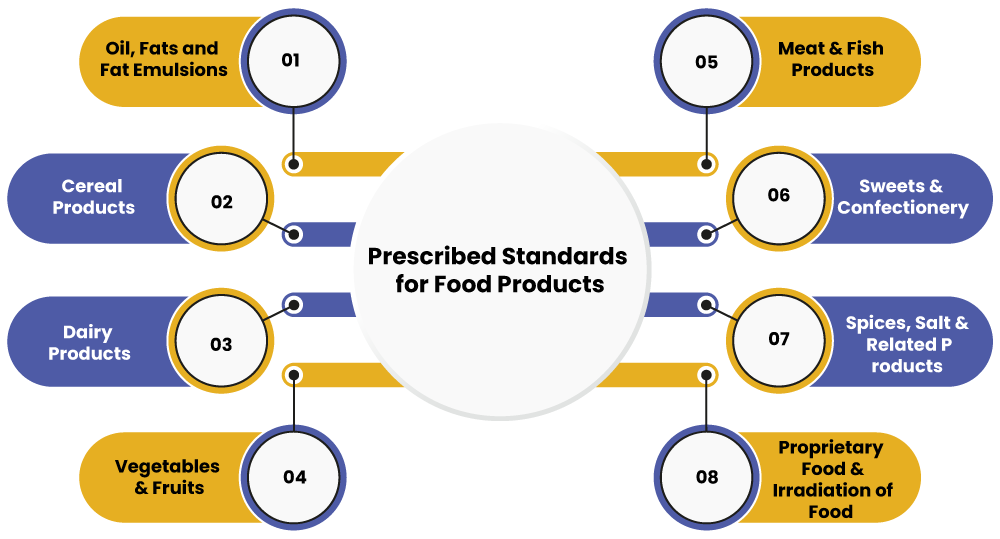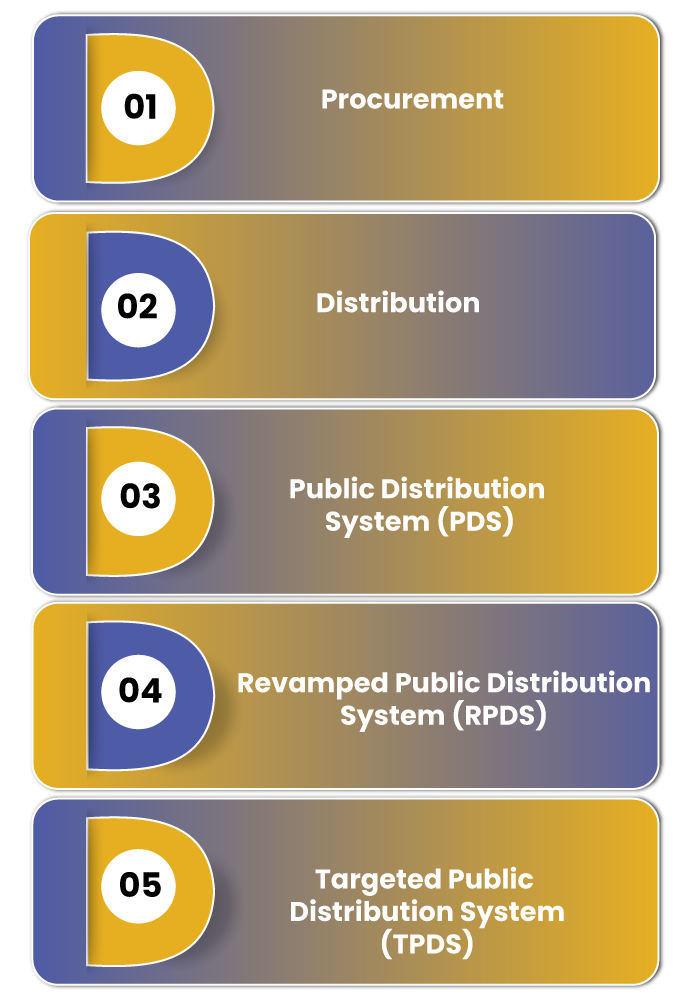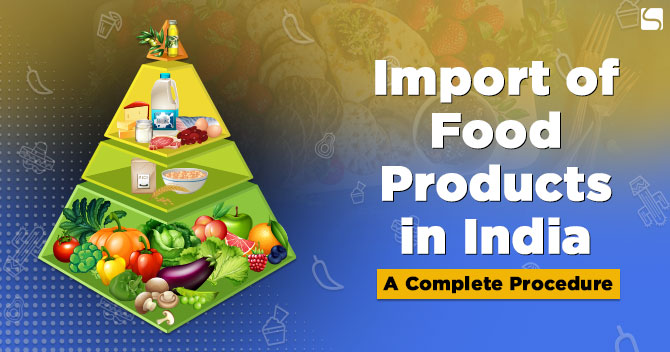Know the difference between FSSAI and FCI

Japsanjam Kaur Wadhera | Updated: Dec 08, 2020 | Category: FSSAI
The term FSSAI stands for Food Safety and Standard Authority of India which performs the function of supervising and governing the business of food in India. Whereas, the term FCI stands for Food Corporation of India. It plays a major role in ensuring the availability of the food stock adequately. Both FSSAI and FCI govern the business of food but, both the authorities are different and perform different functions. To know the difference between FSSAI and FCI all the information is discussed under this article.
Table of Contents
What is FSSAI?
FSSAI is an organisation which performs the function of monitoring and governing the food business in India. It is a self-governing body which is formed under the Ministry of Health & Family Welfare Government of India.
It is established under the Food Safety and Standards Act, 2006[1] which governs the safety of food and regulations in India. It prevents the adulteration of food and selling of sub-standard products by doing a quality check. It performs the function of making registration and providing license of Food business operation in India and consist rules and regulations for the operation of food business in India.
Why is it necessary to get FSSAI registration?
It is necessary for a food business operator (FBO) who is involved in any whether manufacturing, processing, storage distribution and sale of the food products to get an FSSAI registration or license.
The FSSAI Registration is different from License and therefore, depending upon the nature and the size of the business the FBO must obtain the registration or the license. The purpose of the registration is to create a responsibility upon the FBO to ensure the quality of the food products. The registration and license is regulated by the Food Safety & Standards Regulations, 2011.
Three types of Licenses
What the three types of license which can be issued depending upon the nature and the size of the business?
Depending upon the nature and the size of the food business the license can be obtained in below of the following types: –
- FSSAI Central License – For the large food business
- FSSAI State License – For the Medium food business
- Basic FSSAI License – Petty food business
By whom is the FSSAI Registration done?
All the FBO who are engaged in the petty or small-scale food business needs to get the FSSAI Registration done. It includes the following businesses: –
- FBO whose annual turnover does not exceed more than Rs. Twelve Lakh.
- Petty retailers in the food business
- All the stall holders who are not permanent and involved in the sale of food
- A person engaged in manufacturing and selling of food items by himself
- A person engaged in distributing for in social or religious gatherings, excluding a caterer
- Cottage and small scale industries engaged in operating in the food business
- Business whose food production capacity is up to 100 kg or ltr per day (except milk and meat)
- Handling, procuring and collection of milk up to 500 ltr per day
- Business whose slaughtering capacity is either 50 birds or 10 small animals or 2 large animals per day.
What is the procedure for obtaining FSSAI Registration?
- In order to get an FSSAI Registration, the first step is to submit a Form – An application that is to be submitted to the Food and Safety Department.
- The application submitted by the applicant can either be accepted or rejected by the department with the 7 days from the date of the receipt of the application. And if rejected, it shall be informed to the applicant in writing.
- Where an application is accepted by the department, it shall issue a Certificate of Registration along with the photo of the applicant and a registration number.
- It is compulsory for the FBO that at his place of business he must display the registration certificate during the business hours.
The Central and State FSSAI License Requirement
The License under the FSSAI is divided into two categories
- State FSSAI License
- Central FSSAI License
All those FBO who does not have a small scale food business has to obtain either a State FSSAI License or Central FSSAI License depending whether it a medium or a large scale business. The FBO engaged in medium scale business having a turnover between Rs twelve Lakh to twenty Crore, has to obtain State FSSAI License and FBO engaged in large scale business having a turnover exceeding Rs. Twenty Crore has to obtain Central FSSAI License.
The State and the Central license have tenure of maximum of five years and minimum one year.
Prescribed standards for food products
Certain food products for which the FSSAI has set prescribed standards are

- Oil, Fats and Fat emulsions
- Cereal products
- Dairy products
- Vegetables and fruits
- Meat and fish products
- Sweets and confectionery
- Spices, salt and related products
- Proprietary food and irradiation of food
What are the benefits for obtaining FSSAI License in Food Business?
It is necessary for a Food business operator to obtain the FSSAI License because it helps to ensure the safety of the food. It regulates the manufacturing, processing and distribution and sale of food by the FBO. It provides him with legal benefits and helps him to build his reputation and goodwill in the market which in turn helps in the expansion of the business. FSSAI License in food business also helps to create awareness among the customers about the quality of food being sold to them.
While we have gained some knowledge about the FSSAI, now let us get to know about what is FCI and what role does it play in the food business. This will help us to easily differentiate between the role of FSSAI and FCI.
What is FCI?
“The Food Corporation of India (FCI) is a Public Sector undertaking, under the Department of Food & Public Distribution, Ministry of Consumer Affairs, Food and Public Distribution”.
It is a statutory body which was established in 1965 under the Food Corporations Act 1964. The purpose of establishing it was due to the major shortage of grains that occurred, especially wheat.
And at the same time, the Commission for Agricultural Costs and Prices (CACP) was established in 1964 to play a role of providing remunerative prices to the farmers.
The responsibility of FCI is to perform the duty of purchasing, storing, transporting and distributing and selling the food grains.
FCI Organizational Setup
FCI has its headquarters at New Delhi having twenty-five regional offices and five Zonal offices and 170 district offices under its regulation and control.
What is the main purpose for the establishment of FCI?
The main purpose for which FCI is established is: –
- To ensure and control the food security of the country by ensuring the satisfactory level of the “operational buffer stocks” of the food grains.
- Providing stable remunerative prices to the farmers
- To look after and ensure of making the food grains available, accessible and at an affordable price to the consumers.
- Ensuring to undertake public distribution system in distributing food grains
- Taking initiatives in price support operations so as to safeguard and protect the interest of the farmers.
What are the major roles undertaken by FCI?

Procurement
The Central Government through FCI and other state agencies extend the price support for procuring paddy, wheat and coarse grains. The procurement agencies procure all the food grains at the Minimum Support Price along with any bonus or incentives if the food grains meet with the standards. It can be done either directly or indirectly.
The State government under the “Decentralized Procurement Scheme” (DCP) and Targeted Public Distribution System (TDPS) distribute, store and procure the food grains by themselves. And many other welfare schemes have been launched for procurement of food grains as well.
The DCP was introduced to improve the efficiency of procurement for the public distribution system and to promote it in no-traditional states so as to save the losses in transit and other costs.
It is ensured by the Quality Control Division of FCI that the food grains are procured from the procurement centres and is in accordance with the Government of India’s uniform quality standards.
FCI has been nominated as an “Additional Agency for procurement of pulses and Oilseeds”.
Distribution
When the grains are procured by the FCI at a central issue price which is fixed by the govt so as to help the economically vulnerable sections of the society, it meets with the requirements of the TDPS as well.
Foodgrains are delivered by FCI to the State govt of other State agencies for the distribution through the Fair Price Shops.
Under the National Food Security Act, 2013 it becomes even more important for the FCI to distribute food grains at highly subsidized prices through TDPS and other welfare schemes.
Public Distribution System (PDS)
After the instance of food shortage in 1960, distribution of food grains became very important criteria for which the public distribution system was introduced. Its purpose was to control the increase in food grain prices and ensure the availability of food to the people.
It is the responsibility of both the State and the Central Government to operate and control the PDS. Commodities like kerosene, wheat, sugar, rice are being allotted to the State govt for the distribution under the public distribution system.
Revamped Public Distribution System (RPDS)
RPDS which was introduced in June 1992 was launched to strengthen the PDS and to improve its availability in the remote areas so that it reaches to the poor section of the society as well.
Targeted Public Distribution System (TPDS)
TPDS introduced in 1997 due to the failure of the PDS system and to provide benefit to the poor and control the budgetary food subsidies. Its purpose it to provide the availability of the food grains to the people below the poverty line at a very subsidised rate from the PDS and food grains at a higher price to those who are above the poverty line. Thus it serves the purpose of PDS but also puts its focus on the people who are below the poverty line.
FCI in the times of COVID – 19
FCI has played a very important role during the time of COVID – 19 in maintaining the food security provisions. The government on 26th March 2020 announced COVID – 19 relief packages of Rs. 1.7 lakh crore. And it was followed by an Rs. 20 lakh crore package, announced on 12th May 2020.
The main objective of providing the relief packages was to provide food grains to the weaker section of the society.
In this unexpected pandemic, the FCI played a very crucial role to procure, store and distribute the food grains to the people. The food ministry also allowed the NGO’s and charitable organisations to directly buy rice and wheat from FCI at “open market sale scheme rate” without going through the process of e-auction.
The FCI maintained the availability of the food grain stock across the country to meet the state govt’s demand for providing food to the ones who are affected by COVID – 19.
The Food corporate in India is working day and night to manage and provide the supply of the food grains.
Conclusion
Where the function of the Food safety standard authority of India (FSSAI) is to ensure that the quality of the food is maintained, the Food Corporation of India (FCI) plays an important role to distribute good quality of food grains and ensure that it reaches out to every section of the society. Though they both deal with the food business, yet they perform a different function from one another.
Food safety, security and standard of quality are essential in the food business. Before it reaches out to the people FSSAI and FCI make sure that it meets the requirements in their operation. The responsibility of FSSAI and FCI is very crucial in these times, during the pandemic. They have maintained all the standards while performing their responsibility to serve to the people of this Country.
Also, Read: What are the Licenses Required to Start a Bar in India?












